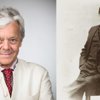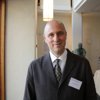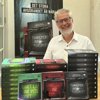Fritextsökning
Artiklar per år
Innehållstyper
-

Novo Nordisk establishes new factory in Denmark
Novo Nordisk establishes a new production facility in Odense, Denmark, an investment of 8.5 billion Danish kroner.
-

Hypothesis testing versus conspiracy theory
"How do you know what is a conspiracy theory and what is a reasonable, scientifically based conclusion?" In a column, Ingrid Lönnstedt reflects on this question.
-

Partial court victory for entrepreneur who lost his company
Swedish life science entrepreneur Mikael Kubista has won the first round against a law firm that he, along with other co-owners, sued for negligent advice in connection with losing his company, Tataa Biocenter.
-

Novo Nordisk miljardsatsar – etablerar ny fabrik i Danmark
Novo Nordisk etablerar en ny produktionsanläggning i danska Odense, en investering på 8,5 miljarder danska kronor (motsvarande cirka 13,2 miljarder svenska kronor).
-

Lösning hittad för Orexos patenttvist
En långdragen patenttvist mellan Uppsalabolaget Orexo och indiska Sun Pharmaceutical Industries är nu löst genom förlikning.
-

Glada miner över storsatsning – ”Kommer stärka Sveriges konkurrenskraft”
Regeringen har presenterat förslaget om en historiskt stor satsning på forskning och innovation. Life Science Sweden har samlat in reaktioner från branschen och akademin.
-

Anna Törner: ”If I fall seriously ill, I’ll move to Finland”
”It is both undignified and undemocratic that cancer patients must travel to Finland to uphold a façade of fairness that does not truly exist”, Anna Törner writes in a column.
-

Novo Nordisk to invest billions in new quality control lab
Novo Nordisk has announced plans to invest 2.9 billion Danish kroner in order to establish a new quality control laboratory in Hillerød in northern Zealand, Denmark.
-

In search of Marcel Proust's lost health
A great writer, but also a weak person and a hypochondriac. That has been the usual image of Marcel Proust. But the pediatrician and literary scholar Carl Lindgren paints a partly different picture in a new book about the French master's life, health and attitude towards physicians.
-

Saniona tecknar licensavtal med miljardpotential inom tremor
Läkemedelsutvecklaren Saniona har ingått ett licensavtal med amerikanska Acadia Pharmaceuticals om utveckling och kommersialisering av läkemedelskandidaten SAN711 inom neurologiska sjukdomar.
-

Investigations against AstraZeneca: ”Chinese interests may be behind them”
Why are there several investigations against AstraZeneca employees in China right now? Life Science Sweden continues to seek answers.
-

Orbán's extended arm becomes health commissioner in the EU
Hungarian Olivér Várhelyi may soon become the most influential official for the healthcare and pharmaceutical industry in the EU. Várhelyi, who is close to Hungarian prime minister Viktor Orbán, is seen as a controversial figure due to his opposition
-

Scilifelabs ordförande får förnyat förtroende
Ylva Engström fortsätter som ordförande för Scilifelabs. Hennes nya förordnande sträcker sig till 2027.
-

AZ gets approval for drug targeting rare disease – it may reduce cortisone dependence
AstraZeneca’s drug Fasenra gets an expanded indication in the EU and is now approved as a treatment for the rare autoimmune disease known as Churg-Strauss syndrome.
-

A new life science cluster formed – “We are very strong in talent”
Stockholm and Uppsala’s joint life science cluster aims to be among the best in Europe. Pontus Holm, Life Science Coordinator for Region Stockholm, says the decision to create a joint profile for the two cities is strongly supported. He mentions that around 50 stakeholders were asked last winter if they were in favour of a joint cluster and that “the answer was a resounding yes”.
-

This years Nobel prize in medicine – “Changed the understanding of how genes are controlled”
This year’s Nobel Prize in Physiology or Medicine goes to the discovery that small RNA molecules, known as microRNAs, control how genes are regulated. Understanding the mechanism has changed our view of human biology and evolution, says KI Professor András Simon.
-

Trendbrott när kostnaden för inhyrd vårdpersonal minskar
Regionernas beroende av hyrbemanning minskar för första gången på flera år.
-

“We should avoid surgery if we can”
Since February this year, she has been Scientific Director Life Science at the Karolinska Institutet. Life Science Sweden met Anna Martling for a talk about role models, surgery and Sweden’s strengths and weaknesses in medical research.
-

Ingrid Lönnstedt: ”The confidence interval and its width”
Always keep an eye on the width of your and others’ confidence intervals, writes Ingrid Lönnstedt in a science column.
-

Takeover bid is being completed – Japanese company acquires Calliditas
Japanese company Asahi Kasei completes the bid for Calliditas Therapeutics after reaching over 90 percent of the shareholding. Callidita's board has now decided to apply for delisting of the company´s share from Nasdaq Stockholm.
-

Astra Zeneca miljardsatsar i Södertälje – bygger ut läkemedelsfabrik
Astra Zeneca satsar nästan 1,5 miljard kronor på att bygga ut sin anläggning för biologiska läkemedel i Södertälje.
-

Anna Törner: Yes, I Am Sick, But Not Weak
”People often say that someone who is ill only has one wish—to get better. But I think that is not true. Someone who is ill also longs to be understood, to be respected, to not have their identity overshadowed by their condition”, writes Anna Törner in a column.
-

Biotech-entreprenör och sci-fi-författare – ”För att koppla av började jag skriva”
Han har grundat Lundabolaget Iconovo, författat en trilogi sci-fi-deckare och drömmer om en Netflix-serie baserad på hans egna böcker. ”Det roligaste är att ta en idé och realisera den” säger Orest Lastow.
-

Ny behandlingsmetod för ändtarmscancer testad i sjukvården
Operation vid ändtarmscancer kan ibland undvikas med en ny behandlingsmetod. Det menar forskare vid Uppsala universitet som testat metoden i sjukvården i en ny studie.